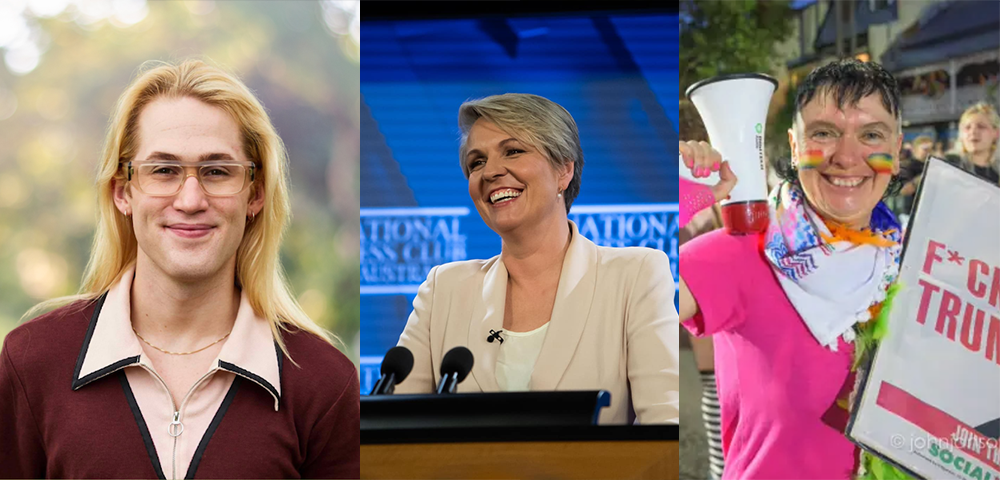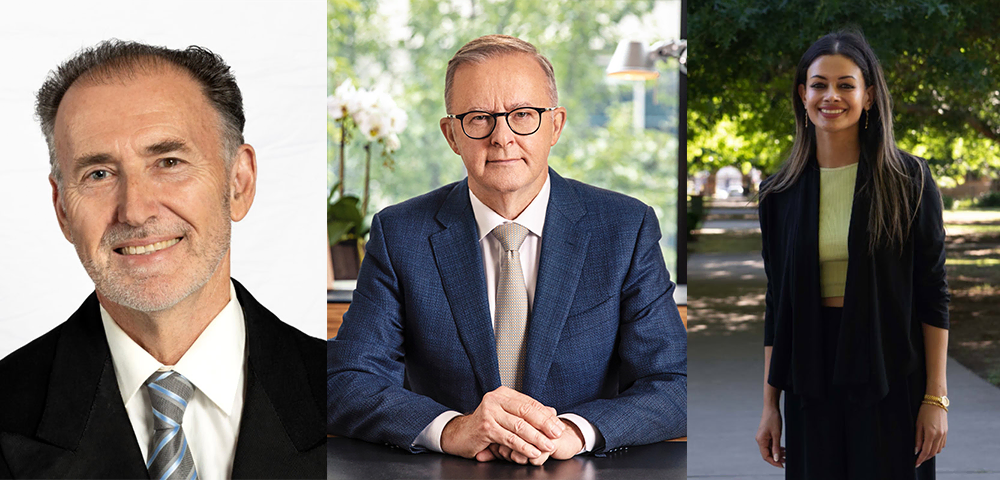
What’s the meaning of Mardi Gras?
The Sydney Gay and Lesbian Mardi Gras is a much loved festival filled with artistic, dramatic, social and intellectual activities. And, of course, the parade.
Since it was first held in 1978, the Mardi Gras parade has consisted of colourfully over-dressed cross-dressed gay men and women (and all things in between) marching down Oxford Street -“ as we all know. By doing so, the gay community has claimed this space as its own.
The carnival of politics, protest, sexuality and costume that is Mardi Gras has made it a metaphor for Sydney’s gay community. For many gay men and women in Sydney, Mardi Gras is the most popular and unifying gay event on the calendar. Individual differences are respected and celebrated, yet become secondary to the very act of participating in, or watching, the parade and its spin-off events.
Sydney loves its Mardi Gras too. It’s an entertaining spectacle for many people -“ both gay and straight -“ and gives Sydney a cultured image that attracts a lot of spectators and tourists. It’s estimated to attract well over half a million spectators each year and inject up to $46 million into Sydney’s economy. Mardi Gras is big bucks.
The parade’s very nature makes it profoundly political. The original aims, of course, were achieving greater civil rights for non-heterosexuals, the acceptance of homosexuality in society and in workplaces, and support in the fight against AIDS, among other things. In 1978 the gay community faced many vital challenges. Struggles had to be fought to ensure survival of the community and attain some basic human rights.
Yet things have since changed. Gay politics is different now. The political edge of Mardi Gras has dissipated a bit, and it’s more openly embracing the general public.
Is Mardi Gras still a rallying call to Sydney’s gay population? Does everyone want to participate in some shape or form, or do more and more gay people find it boring and redundant?
When the organising body went into receivership in 2002 -“ succumbing to fundraising difficulties, rising insurance costs and declining international tourism -“ it looked as though Mardi Gras might have disappeared for good. That didn’t happen, luckily, and a new major sponsor (Gaydar.com.au) was found. The festival’s events were diversified and spread out.
Yet criticisms of the parade abound. Has it become too commodified, captive to the commercial pressures of sponsors and popular pressures of the media? Have the creativity, shock value and highly sexual displays been toned down so it can be shown on TV, so children can attend and so it can stay on the right side of the police and council?
Perhaps -“ but that’s not a bad thing. The more people who watch Mardi Gras, the more publicity gay issues get. Many of the floats are witty and entertaining. There are still ample opportunities to get messages across in innovative and bold ways.
It shouldn’t be forgotten, either, that the Mardi Gras is one of Sydney’s major tourism drawcards. In a sense, the authorities have a vested economic interest in its health. If Mardi Gras goes under, both Australia’s tourism market and Sydney’s cosmopolitan image in a globalised world suffer.
Undoubtedly, though, some gays are asking: What’s in it for me? Gay political struggles of previous decades have been achieved. There are still plenty of areas where straights and non-straights are treated differently, and unfairly, under the law -“ gay marriage, superannuation amongst couples, etc. However, progress has certainly been made since the 1960s and 70s. Medical advances, public health campaigns and support agencies have dimmed the threat of AIDS. Many more people (although mostly in urban rather than rural places) are willing to accept, even facilitate, gays in their community.
Wider society is a lot more tolerant of homosexuals than it ever has been. Popular culture embraces gay, and it’s hard to think of a television drama or sitcom that hasn’t had a gay character or covered gay themes. Gay is in. Not everywhere, mind you, and there are always going to be problems with homophobic violence. Yet tolerance and acceptance have improved markedly over time. Many gays are now asking: What’s left to fight for? Why should I devote my own time and effort for gay political causes?
But then, at the same time, gay stereotypes aren’t so popular for homosexuals any more. Why adopt gay practices and attitudes when there’s no incentive -“ such as survival, community, or politics -“ to do so any more? Why live your life on Oxford Street, or around the gay scene that’s rife with drugs and various social pressures, when you can be an individual?
Attitudes towards homosexuality are changing among the younger generation. Rising house prices, big retail changes and shifting entertainment patterns among people all over Sydney have altered, and diminished, Oxford Street’s appeal. As such, many young openly gay men and women are adopting other identities -“ such as Christian, ethnic, working-class, queer -“ that mean much more to them than being part of some gay community does.
Wasn’t individualism, being oneself, one of the ultimate aims of the gay liberation movement?
Other places are being adopted too. King Street in Newtown has become more gay-popular and trendy recently. Gay no longer means Darlinghurst. Gays feel more comfortable being out and living elsewhere, suburbia and Western Sydney even, and gay populations may be dispersing.
Yet perhaps this is all beside the point. Most gays, across Sydney and elsewhere, love to party. They still like to get together once a year for their big community party, Mardi Gras. Hundreds of thousands keep coming to Mardi Gras to let their hair down, parade or party, and fight for further gay rights just by being there.
Mardi Gras has changed with the times, but not always for the worse. Perhaps it’s now more humour than activism for the spectators. For those parading, and the gay community, maybe it’s entertainment more than politics: just another big after-party for the gay scene. This scene may be evolving over time and finding new spaces in which to express itself, but it’s unlikely to fade away any time soon.
Nevertheless, you can still have fun without politics, and there’s a lot of potential left for that. Just try not to take too many drugs, please. Long live Mardi Gras!
Brad Ruting is in the School of Geosciences at the University of Sydney.









